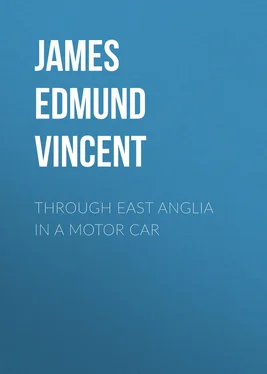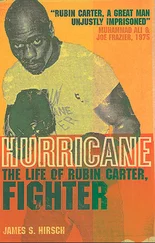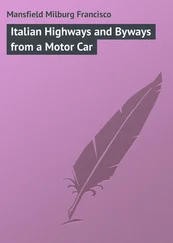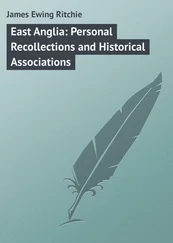James Vincent - Through East Anglia in a Motor Car
Здесь есть возможность читать онлайн «James Vincent - Through East Anglia in a Motor Car» — ознакомительный отрывок электронной книги совершенно бесплатно, а после прочтения отрывка купить полную версию. В некоторых случаях можно слушать аудио, скачать через торрент в формате fb2 и присутствует краткое содержание. Жанр: Путешествия и география, foreign_antique, foreign_prose, на английском языке. Описание произведения, (предисловие) а так же отзывы посетителей доступны на портале библиотеки ЛибКат.
- Название:Through East Anglia in a Motor Car
- Автор:
- Жанр:
- Год:неизвестен
- ISBN:нет данных
- Рейтинг книги:3 / 5. Голосов: 1
-
Избранное:Добавить в избранное
- Отзывы:
-
Ваша оценка:
- 60
- 1
- 2
- 3
- 4
- 5
Through East Anglia in a Motor Car: краткое содержание, описание и аннотация
Предлагаем к чтению аннотацию, описание, краткое содержание или предисловие (зависит от того, что написал сам автор книги «Through East Anglia in a Motor Car»). Если вы не нашли необходимую информацию о книге — напишите в комментариях, мы постараемся отыскать её.
Through East Anglia in a Motor Car — читать онлайн ознакомительный отрывок
Ниже представлен текст книги, разбитый по страницам. Система сохранения места последней прочитанной страницы, позволяет с удобством читать онлайн бесплатно книгу «Through East Anglia in a Motor Car», без необходимости каждый раз заново искать на чём Вы остановились. Поставьте закладку, и сможете в любой момент перейти на страницу, на которой закончили чтение.
Интервал:
Закладка:
James Edmund Vincent
Through East Anglia in a Motor Car
INTRODUCTION
This book, the first volume it is hoped of a series, was undertaken because the existing Guide-books were, through no fault in their writers, by no means adequate to the needs of the traveller by motor-car. A new method of travel, in fact, brings in its train the need for a new species of guide-book, and the truth of this observation becomes clear when we consider an authoritative definition of the term "Guide-book." It is "a book of directions for travellers and tourists as to the best routes, etc., and giving information about the places to be visited." All which needs to be added to this definition by way of explanation is that the information given may justly be of almost any kind so long as it is not tedious.
Substantially, all the existing guide-books, some of them of admirable quality, were written before the motor-car had entered into our social system. Except a small number of accounts of tours by horse-drawn carriages, they were compiled by men who travelled by train from place to place, obtaining no view of the country often—for deep cuttings destroy all joy of the eye for the railway passenger—and at best only a partial view, for the use of men and women condemned to the like method of travel. In them it is vain to seek for any appreciation of the pleasure of the road, of the delight of travel itself. The motor-car has changed all that. The act of going from place to place is at least as essential a part of the enjoyment of a tour as the sojourn at the new place when it is reached, as the leisurely survey of its features of beauty or interest, or the inquiry into its history and its associations. Many matters, too, are of moment to the motorist which are of none to the traveller by rail. He desires to know something in advance of the nature of the roads to be traversed, of the gradients to be climbed, of the facilities for housing his car when his destination of the day is accomplished, and last, but certainly not least, where he can submit it to a skilled artificer for repair if occasion should unhappily arise.
Does the motorist need, or desire, more than has been set forth in the preceding sentence? The anti-motorist will think not, will remain convinced that the motorist is a dust-raising, property-destroying, dog-killing, fowl-slaying, dangerous and ruthless speed maniac. But, of course, the anti-motorist is quite wrong. The rational motorist, who is in the overwhelming majority—but black sheep are sadly conspicuous amidst a white flock—passes through certain regular stages of evolution. At first he revels without thought, or without conscious thought, in the sheer ecstasy of motion. The road which seems to flow to meet him, white, tawny or grey as the case may be, and to open before him as if by magic, the pressure of the cool air on his face, even the tingling lash of the rain as he dashes against it, result in a feeling of undefinable, almost lyrical, exaltation. In the next stage he begins to take in broad impressions of great stretches of country, impressions similar in some respects to those obtained from a mountain top, but secured in rapid succession. Soon—for the faculties of man adapt themselves rapidly to his needs—the man in the car begins to observe more rapidly and more minutely than in the early days. The man at the steering-wheel finds that he can watch the road up to the farthest visible point in advance, manipulate his throttle, use accelerator or decelerator, and, most important of all, be in vigilant sympathy with his engine, subconsciously. At the same time he can take an intelligent interest in the scenes through which he is passing, can carry on a conversation with her or with him who sits by his side, can tell a good story or listen to one, can impart information or receive it, without in the slightest degree neglecting his primary duty of driving and humouring the car. In this is nothing of novelty. The same state of doing instructively and without reflection the right thing at the right time is reached by every proficient in many crafts, by the driver of horses for example, and by the steersman of a sailing vessel. The motorist, therefore, even if he be driving, can think of things outside the car, can remain a rational and intelligent man, can (and in my experience usually does) desire to know those associations of the country-side which, when known, appeal to his imagination, or to his memory, and make the day's journey something better and more interesting than a progress through the air and over the ground. How much more then, after the first bewilderment of motoring has worn off, shall the mere passenger be able and desirous to travel with seeing eye and thinking brain?
There is no need to labour the point. Motorists are well aware, without argument, that they feel an intelligent interest in every part of "this amazing England," and that they would take that interest more fully if they were provided, so to speak, with the proper materials. Such materials ought to be found in guide-books, written in the motorist's mood, which is wider and often less microscopical than that of the traveller in railway carriages, and from the point of view of those to whom county boundaries, which determine the scope of most guide-books, have no meaning, except that the roads are better, and the police are more sensible, in some counties than in others. It is the guide-book writer's business to give first practical facts and directions, and then to provide the information which, after sifting a vast mass of history, legend, folk-lore, literature, and gossip, appears to be most interesting and attractive.
East Anglia has been chosen as the first theme, and in many respects it lends itself exceptionally well to isolated treatment. The motorist, it is true, has no regard for county boundaries, but let him once venture in his car to the east of an imaginary line drawn from the Tower Bridge to the mouth of the Welland, and he will never come outside East Anglia on wheels, except to the westward. The Wash, the North Sea, and the Estuary of the Thames will block him effectually. Let him follow the history of this tract of land, to which the fens were an effectual bulwark on the north-west, and he will find that history to be one of isolation also. East Anglia has always gone on its own way, always worked out its own destinies, always indulged in self-satisfied but inspiring contempt for "the Sheres"; and so, perhaps, it has suffered less at troublous periods of the national history than other parts of the country. Its scenery is rarely, perhaps never, rugged, but it is marked in various parts by many kinds of peculiar characteristics not to be found elsewhere, some of them of quite exceptional charm. It has its ancient cities, its majestic cathedrals, time-worn edifices of many kinds. It is haunted by the ghosts of many great artists in colour and in words; and—a small matter this, but one adding greatly to the interest of a motoring tour—there is no other part of the country in which the lover of bird-life can see so much of bird-life from the passing car.
One drawback, and one only, is there to East Anglia as a topic for a motoring guide-book, and that affects only the maker of the book, not the motoring potentialities, so to speak, of the country. Taken as a whole it is not at all a flat district, and it has enough ups and downs and variety of scenery to suit any taste, but it is practically barren of hills presenting any real difficulty to a car of moderate power. So, in this volume, it is not necessary or possible to indicate any very serious gradients to be encountered on this journey or on that. It remains only, after a word of thanks to the friends who have lent their company and their cars, to add that every chapter is a faithful narrative of tours undertaken or of journeys made, together with an account of the associations and memories appropriate to the places visited, and that, to save breaking the flow of the text, an analysis showing the route taken in each chapter, the distances from place to place, the points at which repairs may be effected, and the general character of the roads, appears at the very beginning of the volume. It must be understood, however, that these roads are judged by an East Anglian standard, for, even in Norfolk, where the road surface is far better as a rule than in any other East Anglian county, the roads cannot honestly be said to be of the highest order of merit. In the case of all hotels the presence of garage accommodation may be assumed, and all have been tried.
Читать дальшеИнтервал:
Закладка:
Похожие книги на «Through East Anglia in a Motor Car»
Представляем Вашему вниманию похожие книги на «Through East Anglia in a Motor Car» списком для выбора. Мы отобрали схожую по названию и смыслу литературу в надежде предоставить читателям больше вариантов отыскать новые, интересные, ещё непрочитанные произведения.
Обсуждение, отзывы о книге «Through East Anglia in a Motor Car» и просто собственные мнения читателей. Оставьте ваши комментарии, напишите, что Вы думаете о произведении, его смысле или главных героях. Укажите что конкретно понравилось, а что нет, и почему Вы так считаете.












